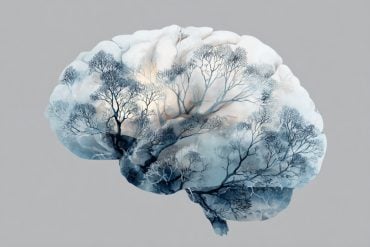Summary: A new theory proposes an imbalance of blood proteins involved in the immune system and in blood clotting networks leads to inflammation that contributes to the development of psychosis.
Source: RCSI
A scientific review has found evidence that a disruption in blood clotting and the first line immune system could be contributing factors in the development of psychosis.
The article, a joint collaborative effort by researchers at RCSI University of Medicine and Health Sciences, Cardiff University and the UCD Conway Institute, is published in Molecular Psychiatry.
Recent studies have identified blood proteins involved in the innate immune system and blood clotting networks as key players implicated in psychosis.
The researchers analysed these studies and developed a new theory that proposes the imbalance of both of these systems leads to inflammation, which in turn contributes to the development of psychosis.
The work proposes that alterations in immune defense mechanisms – including blood clotting – lead to an increased risk of inflammation, which is thought to contribute to the development of psychosis.
The new theory further refines the prevailing ‘two-hit’ hypothesis, where early genetic and/or environmental factors disrupt the developing central nervous system (the “first-hit”) and increases the vulnerability of the individual to subsequent, late environmental disruptions (the “second-hit”).

“Early identification and treatment significantly improves clinical outcomes of psychotic disorders. Our theory may provide a further step to biomarkers of psychosis and allow the identification of therapeutic targets for early and more effective treatment,” said Dr Melanie Föcking, joint first author on the paper and Lecturer in Psychiatric Neuroscience at RCSI Department of Psychiatry.
“While the idea of psychosis resulting from some form of inflammation and immune activation is not new, our data suggest a new understanding and change of focus towards a combined function of the innate immune complement system and coagulation pathways to the progression to psychotic disorder,” said Dr Meike Heurich, joint first author on the paper and lecturer at School of Pharmacy and Pharmaceutical Sciences, Cardiff University.
“The works builds on our recent studies which increasingly implicate dysregulation of the complement and coagulation pathways both in and preceding psychotic disorder,” said Professor David Cotter, senior author of the paper and Professor of Molecular Psychiatry at RCSI Department of Psychiatry.
Funding: The research was funded by the Health Research Board (HRB) in Ireland and Wellcome Trust.
About this psychosis research news
Source: RCSI
Contact: Michael Sullivan – RCSI
Image: The image is in the public domain
Original Research: Open access.
“Dysregulation of complement and coagulation pathways: emerging mechanisms in the development of psychosis” by Meike Heurich, Melanie Föcking, David Mongan, Gerard Cagney & David R. Cotter. Molecular Psychiatry
Abstract
Dysregulation of complement and coagulation pathways: emerging mechanisms in the development of psychosis
Early identification and treatment significantly improve clinical outcomes of psychotic disorders. Recent studies identified protein components of the complement and coagulation systems as key pathways implicated in psychosis. These specific protein alterations are integral to the inflammatory response and can begin years before the onset of clinical symptoms of psychotic disorder.
Critically, they have recently been shown to predict the transition from clinical high risk to first-episode psychosis, enabling stratification of individuals who are most likely to transition to psychotic disorder from those who are not. This reinforces the concept that the psychosis spectrum is likely a central nervous system manifestation of systemic changes and highlights the need to investigate plasma proteins as diagnostic or prognostic biomarkers and pathophysiological mediators.
In this review, we integrate evidence of alterations in proteins belonging to the complement and coagulation protein systems, including the coagulation, anticoagulation, and fibrinolytic pathways and their dysregulation in psychosis, into a consolidated mechanism that could be integral to the progression and manifestation of psychosis.
We consolidate the findings of altered blood proteins relevant for progression to psychotic disorders, using data from longitudinal studies of the general population in addition to clinical high-risk (CHR) individuals transitioning to psychotic disorder.
These are compared to markers identified from first-episode psychosis and schizophrenia as well as other psychosis spectrum disorders. We propose the novel hypothesis that altered complement and coagulation plasma levels enhance their pathways’ activating capacities, while low levels observed in key regulatory components contribute to excessive activation observed in patients.
This hypothesis will require future testing through a range of experimental paradigms, and if upheld, complement and coagulation pathways or specific proteins could be useful diagnostic or prognostic tools and targets for early intervention and preventive strategies.






